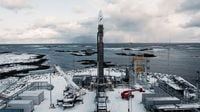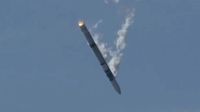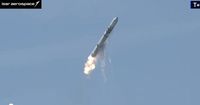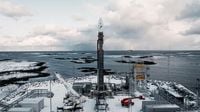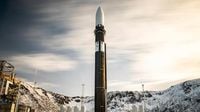The Bavarian start-up Isar Aerospace made history on March 30, 2025, when it launched its "Spectrum" rocket from the Andøya Spaceport in Norway. This marked the first time a space rocket was launched from European soil, albeit the flight ended in failure shortly after takeoff.
At approximately 12:30 PM, the two-stage "Spectrum" rocket lifted off, but only moments later, it lost control and crashed back to the ground. The launch was initially intended to collect data and experience for future missions, with the understanding that achieving orbit was unlikely. The company’s CEO, Daniel Metzler, stated, "With this test flight, we were able to successfully gather valuable data and experiences for future missions. Thanks to the strict safety precautions from both Isar Aerospace and the Andøya Spaceport, all personnel were safe at all times."
The launch had been postponed multiple times due to adverse weather conditions. If successful, the "Spectrum" would have been the first private rocket from Germany to reach space, defined as exceeding the Kármán line, which is 100 kilometers above sea level. The mission was particularly significant as it aimed to demonstrate the capability to transport small satellites into polar orbits, a breakthrough for European space travel.
The "Spectrum" rocket, measuring 28 meters in height and 2 meters in diameter, is classified as a microlauncher capable of carrying payloads between 700 and 1000 kilograms. It uses a combination of propane and liquid oxygen as fuel, generating a thrust of 1.3 million horsepower. The development of the rocket took Isar Aerospace seven years, a notably short timeline in the space industry.
In an interview, Metzler emphasized the importance of rapid development in modern aerospace, stating, "Success means flying for 30 seconds. It's perfectly okay if the rocket explodes or if we have to shut down the engines and abort the mission." This approach reflects a shift in the industry toward a "trial and error" methodology, allowing for quicker iterations and improvements.
Despite the setback, Isar Aerospace is already looking ahead. The company has a second rocket, "Spectrum 2," ready for launch and plans to produce up to 40 rockets per year. The recent financing round saw the NATO Innovation Fund, supported by 24 NATO states, invest in the company, further bolstering its ambitions.
Isar Aerospace's efforts are part of a broader movement in Europe to establish independent access to space. Currently, European nations are heavily reliant on American satellite systems for navigation and communication, a situation Metzler described as leaving Europe "blind" in terms of defense capabilities. He pointed out, "Without satellite communication, our defense is practically blind. A frigate can only operate mechanically and cannot fire munitions without satellite data."
The launch of the "Spectrum" rocket, despite its failure, represents a crucial step toward enhancing Europe’s space capabilities. As the company prepares for future test flights, the European Space Agency (ESA) is providing support, highlighting the importance of developing indigenous space technology.
Looking ahead, Isar Aerospace aims to play a significant role in the burgeoning European space sector, which is increasingly competitive, especially against established players like SpaceX. The company is not only focused on launching satellites but also on contributing to the broader European security architecture by enhancing satellite-based communications and navigation.
In conclusion, while the first flight of the "Spectrum" rocket ended prematurely, the data collected and the experience gained will be invaluable for Isar Aerospace's future endeavors. The company remains committed to its mission of providing reliable access to space, and the next launches are eagerly anticipated by both investors and the aerospace community.
